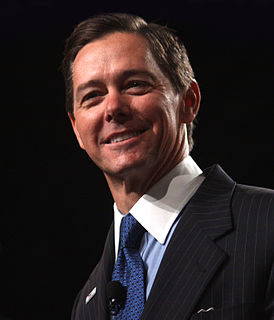A Quote by Mercedes Schlapp
Christians and religious individuals are quickly demonized and not tolerated by the dogmatic left if their views differ.
Quote Topics
Related Quotes
It is remarkable that men, when they differ in what they think considerable, will be apt to differ in almost everything else; their difference begets contradiction; contradiction begets heat; heat quickly rises into resentment, rage, and ill-will; thus they differ in affections, as they differ in judgment.
However, we need to participate and manage skillfully, helpfully, and harmoniously, for a better world, family and society to be possible. So everybody's spiritual by nature I believe, not that they necessarily have to be religious. Everybody wants, or cares about, and has values even if they don't talk about them all the time explicitly, like some noisy preachers do with their foghorn voices and dogmatic views.
The Chief Justice's ... main point seemed to be that the references to God in the Pledge of Allegiance aren't really religious and therefore are not that important - something I would think would offend Christians who think it should stay because it is religious and does matter. Too many Christians appear to be desperate to shore up their failing confidence in their own religious beliefs by having the government officially endorse those beliefs.
Every one of the numberless religions and religious sects views the Deity after its own fashion; and, fathering on the unknown its own speculations, it enforces these purely human outgrowths of overheated imagination on the ignorant masses, and calls them "revelation." As the dogmas of every religion and sect often differ radically, they cannot be true. And if untrue, what are they?
Instead of considering the tremendous contributions people of faith, including Christians and Muslims have made on society and helping those in need and providing a sacred canopy for the faithful, some of respected religious figures and friends are singularly judged through their views on Section 377A.
The zealous disdain for religion in American jurisprudence amounts to intolerance. Keith Fournier of the American Center for Law and Justice concludes that 'the ones not being tolerated are religious people who dare make any kind of religious reference or take any kind of religious posture outside the private arena.




































